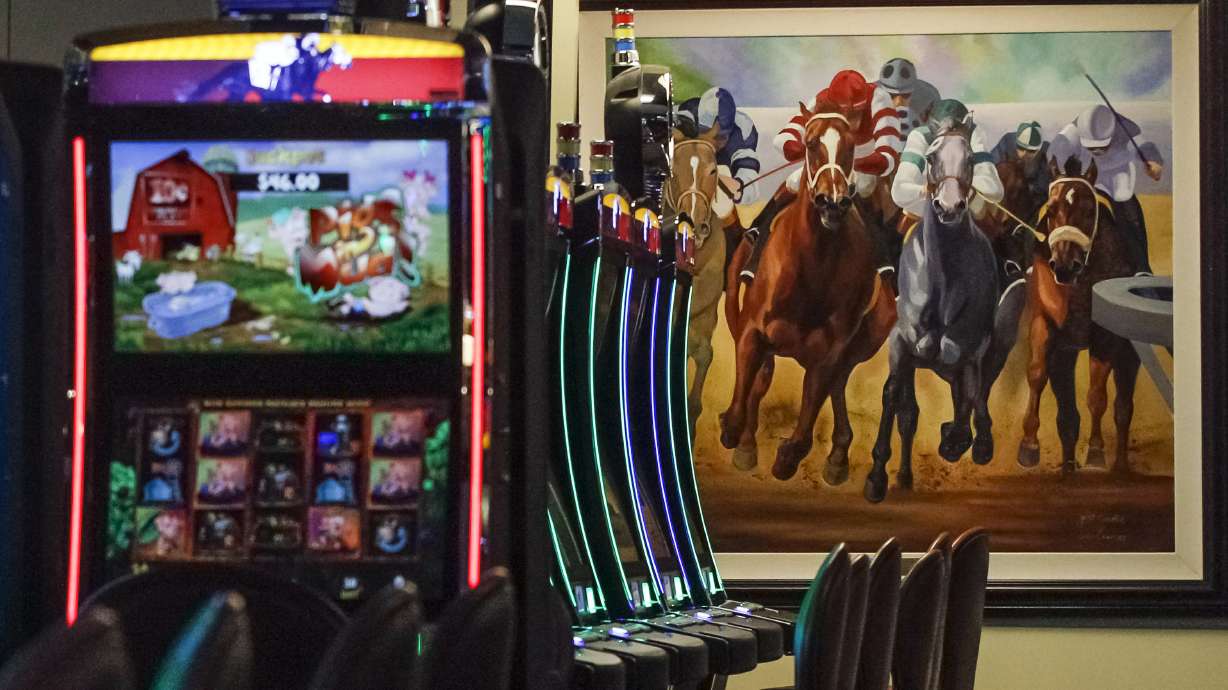Estimated read time: 3-4 minutes
This archived news story is available only for your personal, non-commercial use. Information in the story may be outdated or superseded by additional information. Reading or replaying the story in its archived form does not constitute a republication of the story.
BOISE, Idaho (AP) — Turning off 200 machines Friday morning had already caused John Sheldon to lose 80 employees by the afternoon.
The president of Idaho's largest historical horse racing operation was still reeling from a state Supreme Court decision the day before that found Idaho must enforce legislation banning instant horse racing machines.
Two years ago, Les Bois Park invested $4 million to buy the machines and renovate the facility to help bring in more business to a faltering industry. After years of declining revenue, the slot-like machines were seen as a much-needed shot in the arm. Next year was the first time Sheldon expected the park to break even.
"We're now down to about 20 employees now," he said. "Without historical racing, from our perspective, there will be no more live racing at Les Bois Park."
The high court ruled Thursday that Gov. C.L. "Butch" Otter's prior veto of a bill banning the machines was invalid because he failed to return the rejected legislation within five days. In Idaho, bills automatically become law unless they're vetoed and returned to the Statehouse within the legal timeframe.
Secretary of State Lawerence Denney certified the legislation Friday morning, meaning the machines are officially illegal in Idaho.
The state's Racing Commission is now charged with enforcing the ban among the three horse racing tracks currently operating about 250 instant racing terminals.
Known as either historical or instant horse racing, the machines allow bettors to place wages on prior horse races but without any information about which races they're betting on. The machines — approved by the Legislature in 2013 — have spinning wheels, sounds and animations that mimic slot machines, which are illegal in Idaho.
Lawmakers passed legislation outlawing the machines this year after critics argued they were essentially slot machines.
Proponents said the devices were the latest technological advance in simulcast betting, a form of gambling currently legal in Idaho. The machines, horse track owners said, did not select winners randomly. Instead, winners competed against other players based on simulcast rules, with the track receiving a percentage of the winnings.
Portions of the profits went to the track owners and breeding groups, with the amount paid to the highest finishers at live races.
Opposition to the machines was primarily led by the Coeur d'Alene Tribe, which profits from its own video gambling on the reservation and faced competition from the new horse racing versions.
"We're devastated," said Melissa Bernard, co-owner of Double Down Betting Sports Bar and Grill in eastern Idaho, which operated 40 machines. "The lawmakers enacted a law, and we invested because of the law. It's a sad day for Idaho."
Bernard said she laid off a dozen employees Friday, just hours after turning off her machines. She was uncertain if she would have to let more go in the near future.
An employee at northern Idaho's Greyhound Park, which also operates historical racing machines, declined to comment but said a manager was in the middle of turning off the betting terminals.
Bernard and Sheldon said they would be keeping the machines as they review their options, one of which could be recommending new legislation in 2016 that would attempt to strike a compromise among lawmakers and track owners.
However, such efforts could face an uphill battle after the Legislature passed the anti-instant racing bill with a supermajority in both chambers.
Copyright © The Associated Press. All rights reserved. This material may not be published, broadcast, rewritten or redistributed.








